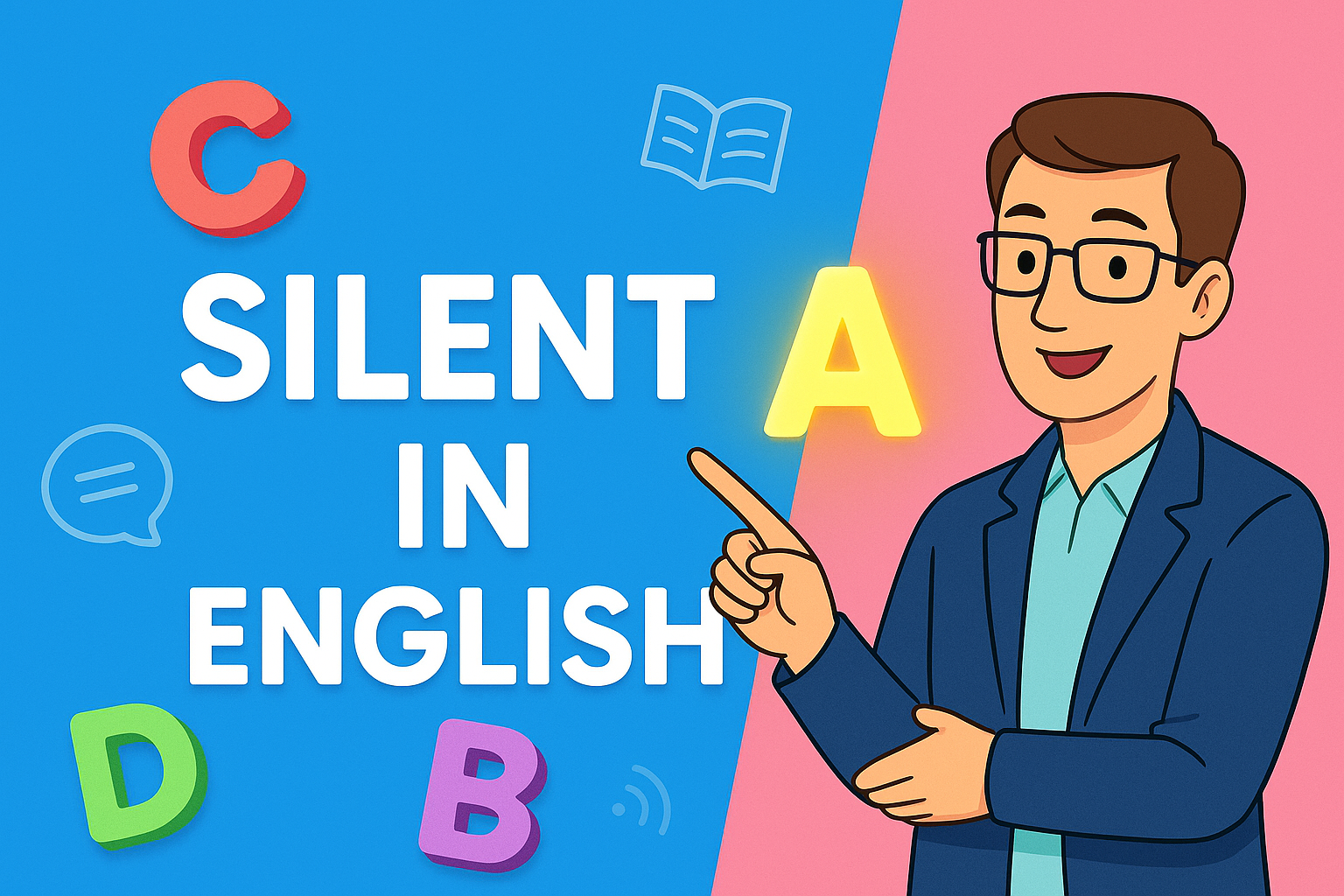Every language has its rebels, and English is full of them. One of the sneakiest? The Silent A. It just sits there, quietly breaking the rules, pretending to matter when it really doesn’t. If you’ve ever stumbled over words like logically or artistically, you’ve already met the troublemaker we’re talking about: the Silent A.
Understanding the Silent A
The Silent A shows up mostly in longer words that end in -ally, –ically, or -ially. You don’t pronounce the “A,” but it’s there for spelling or historical reasons. It gives rhythm to the word on paper, but disappears in speech.
Think of basically (pronounced bay-sik-lee) — that “A” just… vanishes. Same with logically, musically, practically, and romantically.
So why keep it? Because English loves tradition. Many of these words came from Latin or French roots, where the “A” used to matter. Over time, pronunciation changed, but spelling stayed loyal to its roots.
How to Hear (or Not Hear) It
Here’s a simple test. When you see a word ending in -ally or —ically, try pronouncing it slowly. If the A doesn’t sound natural, that’s your Silent A. Native speakers glide right over it, saying log-i-kly instead of lo-ga-kly.
20 Examples of Silent A in English (with meanings)
| Word | Meaning |
| 1. Artistically | In a way that shows creative skill or imagination |
| 2. Logically | In a reasonable or sound way |
| 3. Musically | Relating to music or melody |
| 4. Romantically | In a way that expresses love or idealism |
| 5. Critically | In a serious or analytical manner |
| 6. Basically | In simple or fundamental terms |
| 7. Physically | Related to the body or physical condition |
| 8. Realistically | In a practical or true-to-life way |
| 9. Stoically | Calmly accepting pain or hardship without showing feelings |
| 10. Practically | Almost, nearly, or in a practical sense |
| 11. Magically | In a way that seems to have magic |
| 12. Tragically | In a very sad or disastrous manner |
| 13. Dramatically | In a striking, emotional, or theatrical way |
| 14. Systematically | In an organized, step-by-step manner |
| 15. Alphabetically | In order based on the letters of the alphabet |
| 16. Energetically | In a lively or active way |
| 17. Historically | With reference to history |
| 18. Sympathetically | Showing care or understanding for others |
| 19. Magnetically | Having an attractive quality like a magnet |
| 20. Theoretically | Based on theory rather than experience |
Why the Silent A Matters for English Learners
The Silent A might not make a sound, but it plays a big role in spelling. Many English learners pronounce it because it looks like it belongs there. The trick is to train your tongue to skip it naturally.
Try this:
Say basic-lee, logic-lee, music-lee. Hear how clean that sounds? The A disappears, but the flow improves. That’s how native rhythm works in English speech.
Mini Practice Tip
👉 Read aloud five words with Silent A daily.
👉 Record yourself.
👉 Compare it with native pronunciation on YouGlish or Google Translate’s audio.
Small, consistent corrections like this will make your English sound smoother in just a few weeks.
Fun Fact
The reason “A” went silent traces back to Middle English, when endings like -allic and -ical started blending with -ly. Over centuries, pronunciation softened, but spelling froze in time, giving us the modern Silent A.
Quick Quiz
Fill in the blanks with the correct Silent A word:
- She handled the situation __________ (calm and reasonable).
- The play ended __________ (sadly and emotionally).
- He solved the problem __________ (step by step).
- They danced __________ (with great energy).
- The story is told __________ (as if it were magic).
(Answers: logically, tragically, systematically, energetically, magically.)
Closing Thought
The Silent A is a quiet teacher. It reminds you that English isn’t always about sound; sometimes it’s about rhythm and flow. Once you start hearing when letters stay silent, your pronunciation begins to sound beautifully natural.
Next up: the article on the Silent B, one of English’s oldest silent letters with roots in Latin and Old French — and a few traps that even native speakers fall into.g the Silent A
Click below to learn more about English pronunciation.
https://fluent-eng.com/top-conversational-english-topics-to-boost-fluency/

